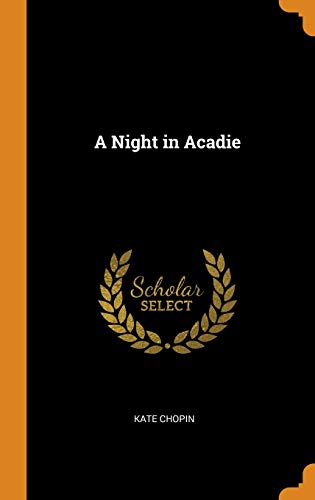-
A Night in Acadie
Chopin, Kate
eBook (HardPress Publishing, Aug. 4, 2014)Unlike some other reproductions of classic texts (1) We have not used OCR(Optical Character Recognition), as this leads to bad quality books with introduced typos. (2) In books where there are images such as portraits, maps, sketches etc We have endeavoured to keep the quality of these images, so they represent accurately the original artefact. Although occasionally there may be certain imperfections with these old texts, we feel they deserve to be made available for future generations to enjoy.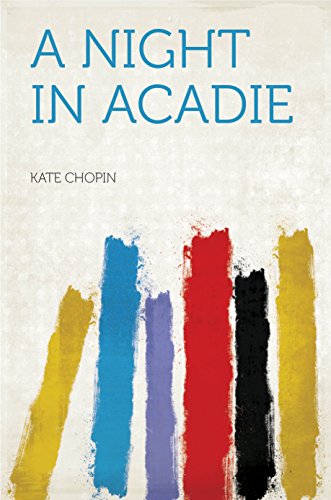
-
A Night in Acadie
Kate Chopin
Paperback (Independently published, July 17, 2019)Complete and unabridged paperback edition.First published in 1897.
-
A Night In Acadie
Kate Chopin
Paperback (CreateSpace Independent Publishing Platform, Feb. 4, 2018)Kate Chopin, born Katherine O'Flaherty (February 8, 1850 – August 22, 1904), was an American author of short stories and novels based in Louisiana. She is now considered by some scholars to have been a forerunner of American 20th-century feminist authors of Southern or Catholic background, such as Zelda Fitzgerald. Of maternal French and paternal Irish descent, Chopin was born in St. Louis, Missouri. She married and moved with her husband to New Orleans. They later lived in the country in Cloutierville, Louisiana. From 1892 to 1895, Chopin wrote short stories for both children and adults that were published in such national magazines as Atlantic Monthly, Vogue, The Century Magazine, and The Youth's Companion. Her stories aroused controversy because of her subjects and her approach; they were condemned as immoral by some critics. Her major works were two short story collections: Bayou Folk (1894) and A Night in Acadie (1897). Her important short stories included "Désirée’s Baby" (1893), a tale of miscegenation in antebellum Louisiana, "The Story of an Hour" (1894), and "The Storm"(1898)."The Storm" is a sequel to "At the Cadian Ball," which appeared in her first collection of short stories, Bayou Folk. Chopin also wrote two novels: At Fault (1890) and The Awakening (1899), which are set in New Orleans and Grand Isle, respectively. The characters in her stories are usually residents of Louisiana. Many of her works are set in Natchitoches in north central Louisiana, a region where she lived. Within a decade of her death, Chopin was widely recognized as one of the leading writers of her time.In 1915, Fred Lewis Pattee wrote, "some of [Chopin's] work is equal to the best that has been produced in France or even in America. [She displayed] what may be described as a native aptitude for narration amounting almost to genius."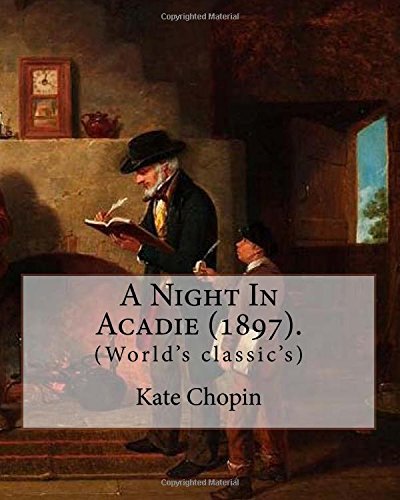
-
A Night in Acadie
Kate Chopin
Paperback (CreateSpace Independent Publishing Platform, Oct. 17, 2012)THERE was nothing to do on the plantation so Telèsphore, having a few dollars in his pocket, thought he would go down and spend Sunday in the vicinity of Marksville. There was really nothing more to do in the vicinity of Marksville than in the neighborhood of his own small farm; but Elvina would not be down there, nor Amaranthe, nor any of Ma'me Valtour's daughters to harass him with doubt, to torture him with indecision, to turn his very soul into a weather-cock for love's fair winds to play with. Telèsphore at twenty-eight had long felt the need of a wife. His home without one was like an empty temple in which there is no altar, no offering. So keenly did he realize the necessity that a dozen times at least during the past year he had been on the point of proposing marriage to almost as many different young women of the neighborhood. Therein lay the difficulty, the trouble which Telèsphore experienced in making up his mind. Elvina's eyes were beautiful and had often tempted him to the verge of a declaration. But her skin was over swarthy for a wife; and her movements were slow and heavy; he doubted she had Indian blood, and we all know what Indian blood is for treachery. Amaranthe presented in her person none of these obstacles to matrimony. If her eyes were not so handsome as Elvina's, her skin was fine, and being slender to a fault, she moved swiftly about her household affairs, or when she walked the country lanes in going to church or to the store. Telèsphore had once reached the point of believing that Amaranthe would make him an excellent wife. He had even started out one day with the intention of declaring himself, when, as the god of chance would have it, Ma'me Valtour espied him passing in the road and enticed him to enter and partake of coffee and "baignés." He would have been a man of stone to have resisted, or to have remained insensible to the charms and accomplishments of the Valtour girls. Finally there was Ganache's widow, seductive rather than handsome, with a good bit of property in her own right. While Telèsphore was considering his chances of happiness or even success with Ganache's widow, she married a younger man. From these embarrassing conditions, Telèsphore sometimes felt himself forced to escape; to change his environment for a day or two and thereby gain a few new insights by shifting his point of view.
-
A Night In Acadie
Kate chopin
Paperback (CreateSpace Independent Publishing Platform, May 17, 2016)Kate Chopin was an American novelist and short-story writer best known for her startling 1899 novel, The Awakening. Born in St. Louis, she moved to New Orleans after marrying Oscar Chopin in 1870. Less than a decade later Oscar's cotton business fell on hard times and they moved to his family's plantation in the Natchitoches Parish of northwestern Louisiana. Oscar died in 1882 and Kate was suddenly a young widow with six children. She turned to writing and published her first poem in 1889. The Awakening, considered Chopin's masterpiece, was subject to harsh criticism at the time for its frank approach to sexual themes. It was rediscovered in the 1960s and has since become a standard of American literature, appreciated for its sophistication and artistry. Chopin's short stories of Cajun and Creole life are collected in Bayou Folk (1894) and A Night in Acadie (1897), and include "Desiree's Baby," "The Story of an Hour" and "The Storm." For more than seventy years, Penguin has been the leading publisher of classic literature in the English-speaking world. With more than 1,700 titles, Penguin Classics represents a global bookshelf of the best works throughout history and across genres and disciplines. Readers trust the series to provide authoritative texts enhanced by introductions and notes by distinguished scholars and contemporary authors, as well as up-to-date translations by award-winning translators.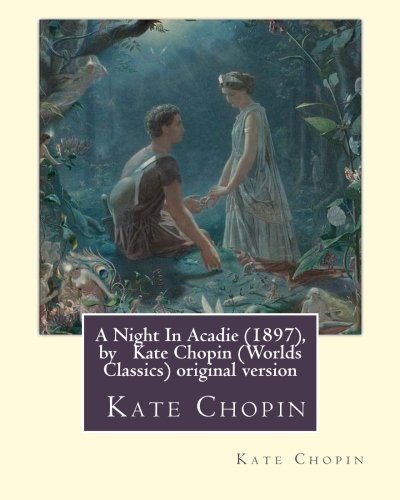
-
A Night in Acadie: 21 Stories
Kate Chopin
Paperback (Americana Classics Press, Sept. 12, 2009)Kate Chopin (born Catherine O'Flaherty, 1850-1904) was an American author of short stories and novels, mostly of a Louisiana Creole background. She is now considered by some to have been a forerunner of feminist authors of the 20th century. From 1869 to 1902, she wrote short stories for both children and adults which were published in such magazines as "Atlantic Monthly," "Vogue," the "Century," and "Harper's Youth's Companion." Her major works were two short story collections, "Bayou Folk" (1894) and "A Night in Acadie" (1897). This volume includes 21 of Chopin's classic short works. Here are: A Night in Acadie Athénaïse After the Winter Polydore Regret A Matter of Prejudice Caline A Dresden Lady in Dixie Nég Créol The Lilies Azélie Mamouche A Sentimental Soul Dead Men's Shoes At Chênière Caminada Odalie Misses Mass Cavanelle Tante Cat'rinette A Respectable Woman Ripe Figs Ozéme's Holiday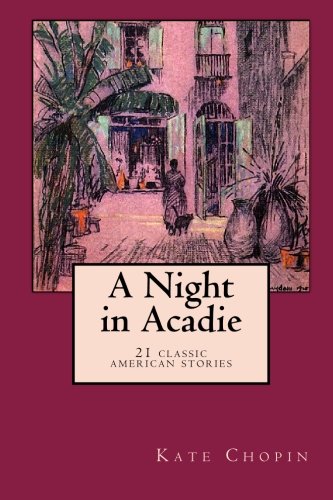
-
A Night in Acadie
Kate Chopin
Paperback (Dodo Press, Jan. 1, 2010)Kate Chopin (born Katherine O'Flaherty) (1850-1904) was an American author of short stories and novels, mostly of a Louisiana Creole background. She is now considered to have been a forerunner of feminist authors of the 20th century. From 1889 to 1902, she wrote short stories for both children and adults which were published in such magazines as Atlantic Monthly, Vogue, The Century, and Harper's Youth's Companion. Her major works were two short story collections, Bayou Folk (1894) and A Night in Acadie (1897). Her important short stories included The Father of Desiree's Baby, a tale of miscegenation in antebellum Louisiana; The Story of an Hour and The Storm. Chopin also wrote two novels: At Fault (1890) and The Awakening (1899), which is set in New Orleans and Grand Isle. The people in her stories are usually inhabitants of Louisiana. Many of her works are set about Natchitoches in north central Louisiana. In time, literary critics determined that Chopin addressed the concerns of women in all places and for all times in her literature.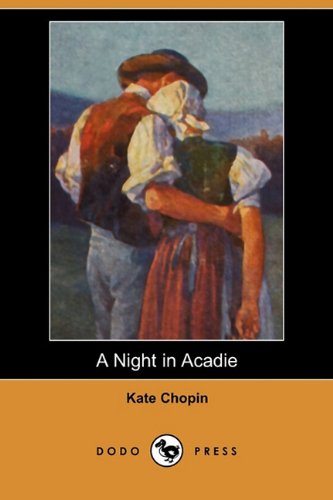
-
A Night In Acadie
Kate Chopin
Paperback (Kessinger Publishing, LLC, June 17, 2004)This scarce antiquarian book is a facsimile reprint of the original. Due to its age, it may contain imperfections such as marks, notations, marginalia and flawed pages. Because we believe this work is culturally important, we have made it available as part of our commitment for protecting, preserving, and promoting the world's literature in affordable, high quality, modern editions that are true to the original work.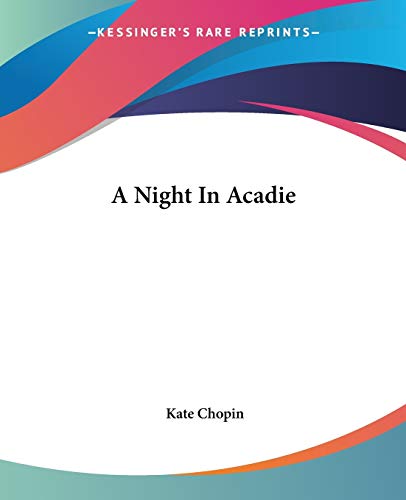
-
A NIGHT IN ACADIE
KATE CHOPIN
eBook (, Sept. 12, 2020)Kate Chopin (born Catherine O'Flaherty, 1850-1904) was an American author of short stories and novels, mostly of a Louisiana Creole background. She is now considered by some to have been a forerunner of feminist authors of the 20th century. From 1869 to 1902, she wrote short stories for both children and adults which were published in such magazines as "Atlantic Monthly," "Vogue," the "Century," and "Harper's Youth's Companion." Her major works were two short story collections, "Bayou Folk" (1894) and "A Night in Acadie" (1897).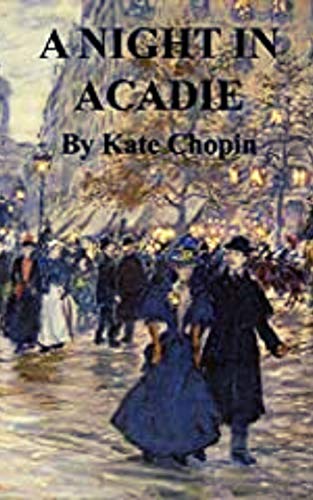
-
A Night in Acadie
Kate Chopin
Hardcover (Palala Press, Dec. 4, 2015)This work has been selected by scholars as being culturally important, and is part of the knowledge base of civilization as we know it. This work was reproduced from the original artifact, and remains as true to the original work as possible. Therefore, you will see the original copyright references, library stamps (as most of these works have been housed in our most important libraries around the world), and other notations in the work.This work is in the public domain in the United States of America, and possibly other nations. Within the United States, you may freely copy and distribute this work, as no entity (individual or corporate) has a copyright on the body of the work.As a reproduction of a historical artifact, this work may contain missing or blurred pages, poor pictures, errant marks, etc. Scholars believe, and we concur, that this work is important enough to be preserved, reproduced, and made generally available to the public. We appreciate your support of the preservation process, and thank you for being an important part of keeping this knowledge alive and relevant.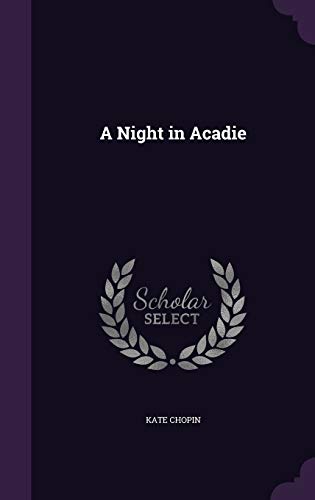
-
A Night in Acadie
Kate Chopin
Paperback (TheClassics.us, Sept. 12, 2013)This historic book may have numerous typos and missing text. Purchasers can usually download a free scanned copy of the original book (without typos) from the publisher. Not indexed. Not illustrated. 1897 edition. Excerpt: ...every telling. Agapie grew up to deserve the confidence and favors of the family. She redoubled her acts of kindness toward Pa-Jeff; but somehow she could not look into his face again. Yet she need not have feared. Long before the end came, poor old Pa-Jeff, confused, bewildered, believed the story himself as firmly as those who had heard him tell it over and over for so many years. Nég Créol A Nég Créol T the remote period of his birth he had been named César François Xavier, but no one ever thought of calling him anything but Chicot, or Nég, or Maringouin. Down at the French market, where he worked among the fishmongers, they called him Chicot, when they were not calling him names that are written less freely than they are spoken. But one felt privileged to call him almost anything, he was so black, lean, lame, and shriveled. He wore a head-kerchief, and whatever other rags the fishermen and their wives chose to bestow upon him. Throughout one whole winter he wore a woman's discarded jacket with puffed sleeves. Among some startling beliefs entertained by Chicot was one that "Michié St. Pierre et Michié St. Paul" had created him. Of "Michié bon Dieu" he held his own private opinion, and not a too flattering one at that. This fantastic notion concerning the origin of his being he owed to the early teaching of his young master, a lax believer, and a great farceur in his day. Chicot had once been thrashed by a robust young Irish priest for expressing his religious views, and at another time knifed by a Sicilian. So he had come to hold his peace upon that subject. Upon another theme he talked freely and harped continuously. For years he had tried to convince his associates...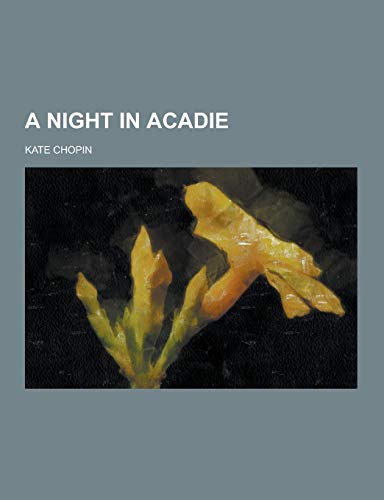
-
A Night in Acadie
Kate Chopin
Hardcover (Franklin Classics Trade Press, Oct. 19, 2018)This work has been selected by scholars as being culturally important and is part of the knowledge base of civilization as we know it.This work is in the public domain in the United States of America, and possibly other nations. Within the United States, you may freely copy and distribute this work, as no entity (individual or corporate) has a copyright on the body of the work.Scholars believe, and we concur, that this work is important enough to be preserved, reproduced, and made generally available to the public. To ensure a quality reading experience, this work has been proofread and republished using a format that seamlessly blends the original graphical elements with text in an easy-to-read typeface.We appreciate your support of the preservation process, and thank you for being an important part of keeping this knowledge alive and relevant.